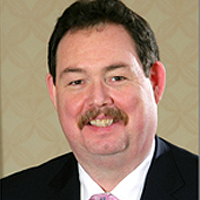PFOS: Takeaways from Nashville
What We Can Learn From CMAA’s Featured Speakers
Read More
We caught up with Skip just before the recent CMAA conference where he was about to officially take the reigns as incoming president of the association. Congratulations, Skip — and thank you for sharing your insights!
CR: As President of CMAA, people will undoubtedly look to you to help define the Club of the Future (COTF). What’s your vision?
SA: There are a lot of people saying you have to look first at opportunities for young families — that what’s driving the future is mothers will children. I’d say we have to think multigenerationally. There are very different needs and niches we should be thinking about.
CR: Clubs are seemingly facing more competition — and becoming more competitive. What defines “competitive” in the COTF?
SA: It’s best we start by understanding not we’re competing against but rather what we’re competing for. And that is discretionary time. We have to demonstrate there’s a perceived value to the time our members invest with us. The value used to be status — belonging to a club was simply “what you did.” It’s different now. Members want to know what they’ll get out of their membership — for themselves and for their family. They’ll ask, “Is this how I want to spend my time?”
CR: What challenges will clubs face as they look to define themselves for the future?
SA: Their own cultures. I suggest we ask ourselves, “Are our rules and regulations handicapping us? Our history and tradition are important — but are they strangling us?”
CR: How do you balance that history and tradition — which many clubs hold dear — and the need for change?
SA: It’s important we understand what is truly tradition versus simply a habit. Does it serve the mission of the club, or is it maybe the result of bad policies and procedures that became part of the “tradition?”
CR: As incoming president of CMAA, what influence do you want to have?
SA: Over the last five years, we’ve seen people pulling back. It’s time to get back in the game. Take risks, take advantage of what’s available to you. If you’re afraid to fail, you won’t grow. It’s time to be progressive.
CR: How does a club decide what to embrace? There are so many options.
SA: We’re in the “it” business: I want what I want when I want it. Today it might daycare or the spa or fitness. Tomorrow it could be sandlot volleyball and soccer. You don’t necessarily want to become trendy, but you have to pay attention to trends. And be prepared to change, to take calculated risks. More than real or perceived “tradition,” you have to understand the culture of the people coming in. Embrace a rich tradition of flexibility!
CR: Is there anything radical you’d offer clubs by way of advice as they consider the future?
SA: They’re not radical but they’re so important they need to be said over and over: Look at your governance model. Does it clearly delineate roles? Hire well and let them do their jobs. Make sure you have a strategic thought process — not just a plan that sits on a shelf. One that lets you not only survive but thrive. You have to have a long-range plan — who you are and what you want to be.
CR: Any parting thoughts?
SA: When clubs in certain areas hurt, we all hurt. We have to make sure the industry is strong; we have to support and help each other. CMAA is good at networking, but we’re even better at netgiving — giving of our time and experience, making sure that we all succeed.
Comments
0 Comment(s)
Show Comments